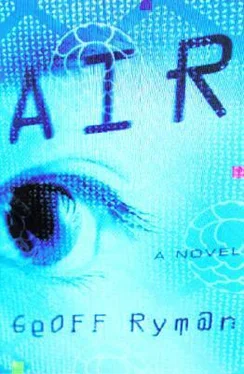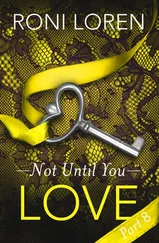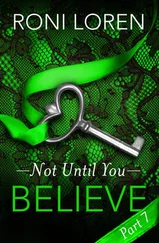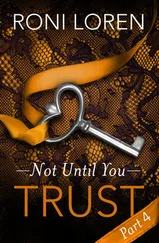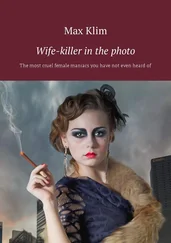'I… have… a… little… girl,' the Cossack said, slowly, in Karz. 'She is pretty. Like you.' His truck full of horses sweltered even though it was night. His mates smoked pipes, and her father sat drinking with them, ramrod straight and slightly twitchy. He was frightened of Cossacks.
It was not Mae's father. The little girl was not Mae.
The Cossack said, 'I send presents to my little girl. She does not always get them. Things are so bad, the postmen take them.' The Cossack shrugged. 'Oh, I miss my little girl. You are happy to live with your father. You are far from the war.'
What war?
The Cossack patted little Miss Hu on her head and let her run back to her father. Her father was plump, smooth-skinned, beardless. He smelled of chives and garlic, not smoke. Miss Hu climbed onto his lap and was covered in kisses as hot and damp as new leaves on tender shoots.
'Ai-ling,' breathed out Mr Hu.
World War Two. This would be, say, 1941.
The town square was dark, except for one streetlight, and there were no tall buildings. Indeed, the square was a terrace of shacks, with men sitting out front, in worn, torn, dusty clothes. Barbershops, bars, spare-parts shops, teahouses. There was a traffic light, and Mae remembered. There was only one traffic light in the whole town.
The Cossack grinned, picked up his viola: It was tiny, unvarnished, with loose wood holding up the strings. The bow was made of horsetail hairs. 'For pretty little girls,' he said.
He played something high, sweet, sad, simple.
'Song says, " Red children, Red children, play.. ."' he explained, and began to sing.
It was a jolly song that made Ai-ling want to dance, jolly but somehow sad. She thought it was the most beautiful thing she had ever heard. She wanted to remember it forever and ever. She beamed up in delight, wonder, at her father, who smiled down indulgently.
And little Ai-ling began to dance. She held out her arms, and spun, wearing her best town dress, a stiff froth of lace, her hair in ribbons, so pretty, little princess, spinning and spinning. The Cossacks, as hard as the roads, melted as if in rain. 'Ahhhh!' they sighed, for all things homely and beautiful. The moment came that Miss Hu loved, when she ceased to be shy. Then she could really dance.
So she really danced, knowing herself to be little and pretty and sweet. All the Cossacks began to sing the song together, enraptured by the sight of a pretty little girl, of home. Some of them came from other fires, with mandolins. The music mounted. Little Ai-ling fell back into shyness, and stopped, and hid her head in her father's trousers. The Horsemen laughed with love.
Mae was rocked like a little paper boat cast out onto the ocean.
The music changed. It rattled. It was Balshang music on the radio, with a roar of engine and harsh sunlight.
Mae was sick again, waves of nausea. She wanted to say: Stop, I need to be sick.
See? See? said Old Mrs Tung. See what you are destroying?
A young person was crowded close to her with concern. Mae did not know who she was at first. 'Are you all right?' Sezen asked, an arm on hers.
'Hmm,' said Mae, not quite saying yes. 'I was sleeping.'
'You were singing,' corrected Sunni, her eyes hidden in the sunglasses. 'In another language.'
They roared down into Green Valley City.
Yeshibozkent was flung like a soiled handkerchief onto the lie of the land. There was much new building now on the outskirts. Raw concrete in irregular frames held panels of barely mortared brick. They would fall in the next earthquake. The air was blue and grey. They were lowered into it, and heat enveloped them like a blanket, smelling of old automobiles.
Dust and fumes and Toyota jeeps that would not stay in their lanes, and old women that walked right out onto the road.
Mr Oz did not slow down, but beeped frantically, continually, forcing people to jump back, or taxis to veer out of his way. Mr Wing chuckled at his driving courage. 'I always wondered how you people got through so fast,' he said.
The city people in sharp clothes walked unconcerned as the van seared the air, passing them by inches. A light turned red and the van lurched to a halt. Pedestrians poured across the intersection.
Sezen laughed, suddenly raucous, and pointed. 'What is that?'
A young man walked in front of the windscreen. He wore soiled, fruit-bowl colours and long braided hair, died blond streaks amid his natural black. Some sort of glasses marred his face, like an eye test or camera lenses. He turned almost blind and looked inside the van. Light flicked, inside the lenses, inside his eyes. His skinny, starveling face bared fangs at them. His teeth were bright yellow like a row of embers.
Sezen rolled down the window. She leaned out and yelled at him, 'What are you?'
Sunni seemed to melt with shame beside Mae.
He yelled back, answering another agenda: 'I just took your photograph.' He staggered slightly, for no reason. 'Dih zee toh el.'
Mr Oz spoke: 'He's an Ay oh het.'
Mr Wing jerked with a superior grin. 'Or he thinks he is.'
The man still yelled at them. 'It is a photograph of peasants!' The smile was nasty. 'You are all dead!'
'It means Airhead,' continued Mr Oz. 'He can't be an Airhead – the Air has not come here yet – but he has read about it in some magazine.'
'You are a fool,' Sezen shouted back, laughing at him. 'The Air is not here yet.'
'My eyes are cameras!' he shouted, as the van pulled away.
Sezen was agog with both scorn and excitement. 'Did you see what he was wearing! What did he have on his eyes?'
'A computer,' said Mr Oz. 'Part of it is embedded in his head.'
The two older women hissed in pain.
'No wonder he was such a mess,' said Sunni, shaking her head.
'Yah, but imagine if it was someone handsome and clever and not a fool,' said Sezen.
'Imagine clean streets,' said Mae. The town was richer, but that just generated drifts of crushed tin and old papers in the gutters.
'Yeshibozkent? Clean?' Sezen was scornful. 'We still think garbage rots. We will never be clean.'
'We are a very clean people,' said Sunni, in outrage. 'There are only two dirty families in our village!' One of them was Sezen's.
Sezen just laughed. 'To someone from the West, we all look like pigs.'
The van beeped furiously. A donkey had suddenly swerved from the side of the road into its path. The van screeched and slid helplessly, shifting sideways as the wheels locked. The van slammed into the animal.
Mae could feel the donkey's ribs, its fur, the knobby knees, all communicated through the front of the truck.
'Oh!'
Mr Wing jumped out. The animal, dazed, kicked itself back up onto its feet and blinked.
'Who owns this animal?' Mr Wing demanded of the street. Plump ladies in shiny purple pantsuits looked mildly surprised.
Sezen was helpless with laughter. 'Does it have cameras for eyes, too? Airhead donkey?'
Mae was not sure why Sezen found it so funny.
No one answered. No one claimed the donkey. It twitched its ears and wandered off as if nothing were wrong. Perhaps, like them, it was dead and didn't know.
The main market square no longer had a public-address system.
The familiar sound of town-coming had been silenced. The smells were the same; vegetables in sunlight laced with city drains. The gabble of trading seemed strangely muted and the square curiously spacious.
'There aren't the people,' said Sunni, mystified.
Mae looked around. 'It is a Saturday. Where are they all?'
'At the hypermarket,' said Sezen, sniffing, collecting her volumes of lime-yellow cloth.
'What's that?'
'The big new store, outside town. "Just-in-Time Rescue.'''
Читать дальше
